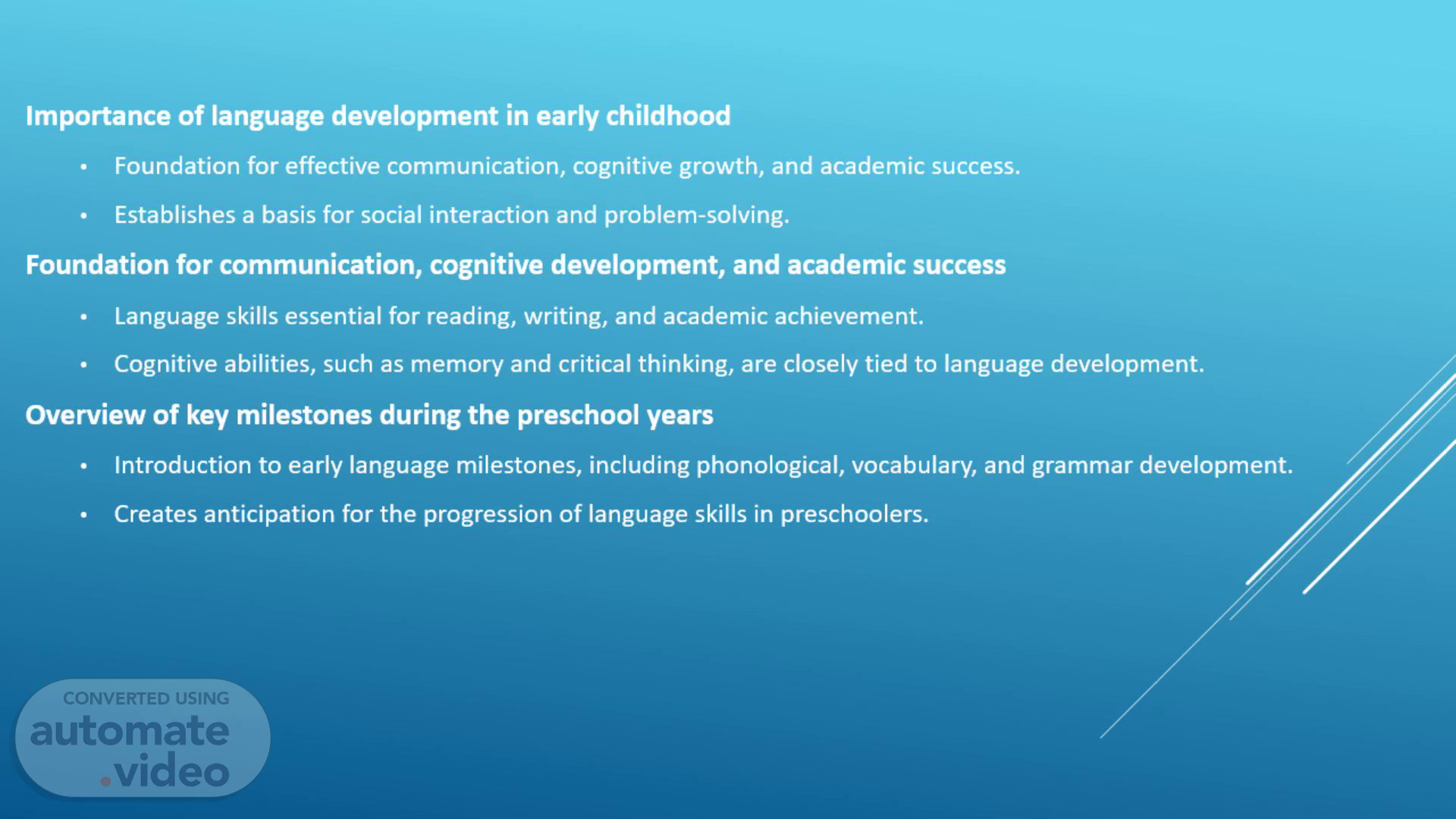
Language development for preschool children
Scene 1 (0s)
[Audio] Welcome to our presentation on Language Development in Preschool Children. In the next few slides, we'll explore why language development is crucial during early childhood and discuss key milestones during the preschool years..
Scene 2 (1m 24s)
[Audio] Let's delve into the stages of language development. In the phonological development stage, children learn to produce and distinguish various sounds. An example is the improvement in pronunciation, like moving from 'wabbit' to 'rabbit.' Phonemic awareness, or the ability to manipulate sounds, is crucial. Engaging in rhyming activities is a helpful strategy. Vocabulary development sees a rapid expansion during the preschool years. Exposure to diverse environments, books, and conversations plays a vital role. Grammar and syntax also progress, with children moving from basic sentence structures to more complex language forms..
Scene 3 (2m 11s)
[Audio] Now, let's explore practical strategies to support language development. Reading aloud has numerous benefits, enhancing vocabulary, comprehension, and bonding. Choosing age-appropriate books is key, ensuring they are engaging and aligned with the child's developmental stage. Conversational interactions are crucial. Encourage open-ended questions to stimulate critical thinking and respond actively to children's statements. Play-based learning, especially imaginative play, promotes language skills naturally. Activities like playing 'grocery store' can seamlessly embed language learning into play..
Scene 4 (2m 56s)
[Audio] Identifying language delays is essential. We'll look at signs like limited vocabulary, difficulties in following directions, and challenges in social interactions. Recognizing these signs is crucial for early intervention. Early intervention involves collaborating with speech-language professionals. Speech pathologists can assess and address language delays. It's equally important to involve parents in the support process. Parents play a central role in reinforcing language skills at home..
Scene 5 (3m 37s)
[Audio] As we conclude, remember the key takeaways. Language development is fundamental, and its stages include phonological development, vocabulary expansion, and the emergence of complex language structures. Identifying and addressing delays early on is crucial. Collaboration between parents and educators is vital for a child's language development. Let's commit to maintaining language-rich environments at home and in educational settings. Thank you for your attention, and feel free to ask any questions or engage in further discussions..